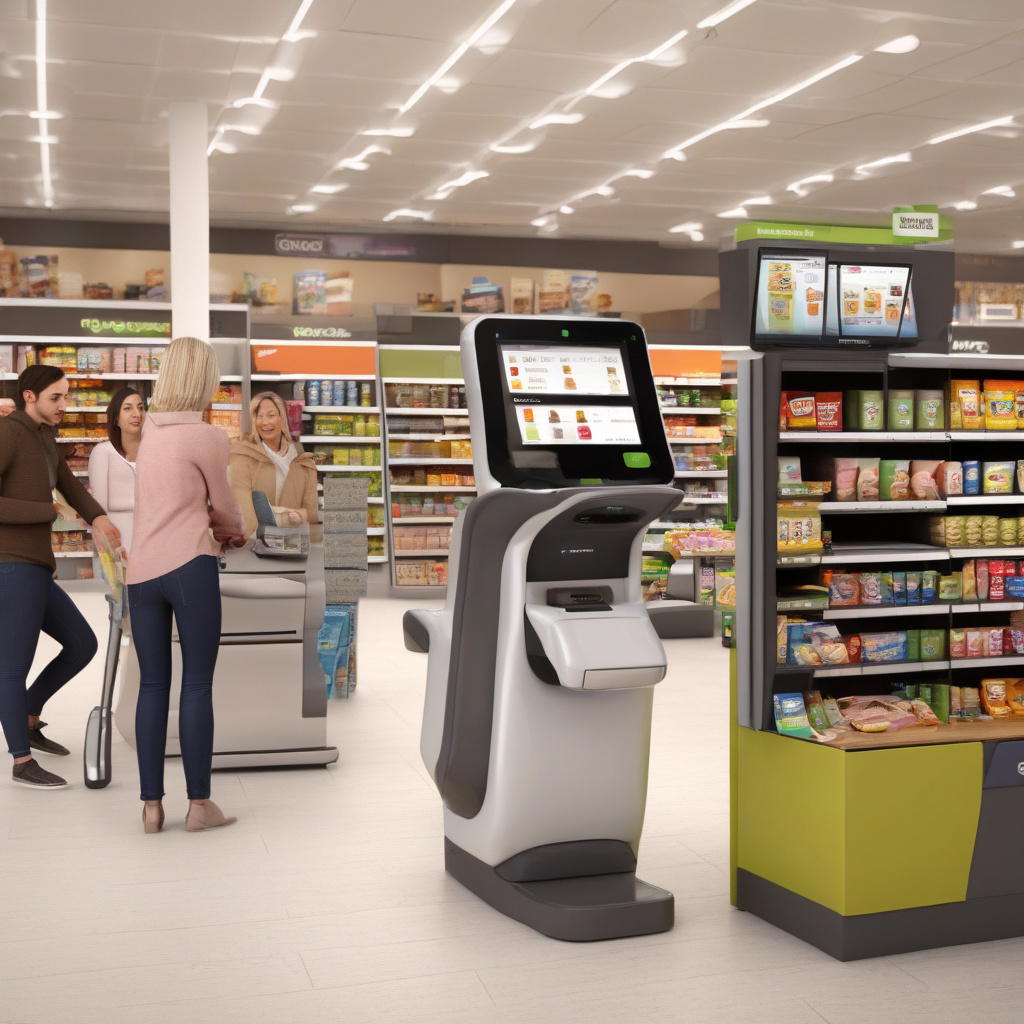UK Retailer Pilots AI-Powered Anti-Theft System at Self-Checkouts
In a bid to combat theft and enhance security, a leading UK retailer is testing an innovative AI-powered anti-theft system at its self-checkout stations. This move comes at a time when retailers are increasingly concerned about losses attributed to shoplifting and other forms of theft, particularly in self-service environments. With the integration of artificial intelligence in retail operations, the potential to reduce theft and improve customer experience is greater than ever.
Self-checkouts have surged in popularity among retailers as they provide a faster and often more convenient shopping experience. However, with the convenience of self-service comes the risk of increased theft. According to recent reports, theft at self-checkouts has become a significant concern for retailers, prompting them to explore advanced technological solutions. The pilot program aims to leverage AI to monitor transactions in real-time and identify suspicious behaviors that could indicate theft.
The AI system uses sophisticated algorithms to analyze customer interactions and transaction patterns at the self-checkout kiosks. By employing machine learning techniques, it can identify anomalies in behavior, such as an unusually high number of items left unscanned or the manipulation of weight sensors. For instance, if a customer scans a few items but places several more into their bag without scanning them, the system can alert staff to intervene before the customer exits the store.
Several retailers have reported substantial losses due to theft at self-checkouts. According to the British Retail Consortium, losses from retail crime cost the industry billions each year. The introduction of AI technology is expected to mitigate these losses significantly. The retailer piloting the system believes that by using AI to monitor transactions, they can not only reduce theft but also enhance the overall shopping experience for honest customers.
One notable feature of the AI system is its ability to adapt and learn from the data it collects. As it processes thousands of transactions, it becomes more proficient at distinguishing between legitimate shopping behaviors and those that may indicate theft. This adaptability is crucial in a retail environment where customer behavior can vary widely. The pilot program will allow the retailer to refine the system further, tailoring its responses based on specific store dynamics and customer demographics.
The implications of this technology extend beyond theft prevention. By improving loss prevention measures, retailers can better protect their profit margins, which have been under pressure from rising costs and competitive pricing. This, in turn, enables them to reinvest savings into enhancing customer service, store renovations, or even reducing prices. A more secure shopping environment also fosters trust and confidence among customers, which can lead to increased loyalty and repeat business.
However, the implementation of AI-powered systems raises questions about privacy and customer experience. The retailer is committed to ensuring that the AI system operates transparently and ethically. Customers will be informed about the technology in use, and measures will be put in place to protect their personal data. Transparency is vital in maintaining customer trust, especially as concerns about surveillance and data misuse continue to grow.
As retailers explore AI solutions, it is essential to strike a balance between security and customer experience. While the primary goal of the AI anti-theft system is to reduce theft, it also needs to enhance the shopping experience. Customers may be deterred if they feel they are being closely monitored. Therefore, the retailer must communicate the benefits of the system effectively, emphasizing that it is designed to provide a safer and more efficient shopping environment for everyone.
The pilot program’s success could pave the way for broader adoption of AI technology in retail. If proven effective, other retailers may follow suit, integrating similar systems into their operations. This could lead to a significant shift in how theft is managed in retail environments, particularly in self-service areas. The benefits of such systems could extend beyond loss prevention, contributing to overall operational efficiency and improved customer satisfaction.
In conclusion, the UK retailer’s pilot of an AI-powered anti-theft system at self-checkouts represents a proactive approach to addressing the growing concerns of theft in retail environments. By leveraging advanced technology, the retailer aims to enhance security, protect profits, and improve the shopping experience for customers. As the pilot progresses, the outcomes will provide valuable insights into the effectiveness of AI in retail and its potential for broader application across the industry.
#RetailInnovation, #AIAntiTheft, #SelfCheckout, #CustomerExperience, #LossPrevention
